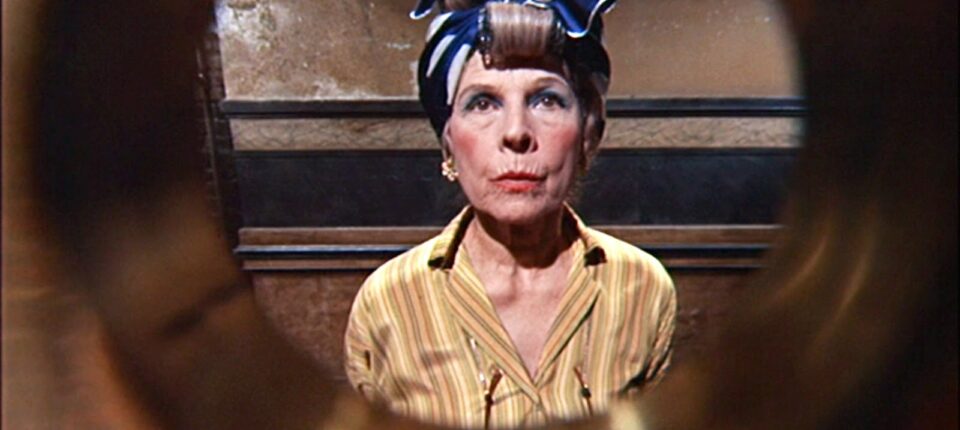We risk exposing parts of our lives to those we trust: our families, our finances, our health troubles, and our most twisted secrets. To some people—a spouse, a psychiatrist—we might risk the whole. But what happens when a trusted person or institution betrays you? Every choice and every conversation becomes suspect; our doubts demand we go back and read it all afresh. My fascination with distrust led me into these dark waters when I wrote my first novel, The Spectacle. When Ingrid, a young assistant, falls in love with a charming New York art dealer, she dreams about spending a lifetime of happiness with him. But when Rudolph’s expensive gallery starts to crumble financially, he grasps for anything—or anyone—who can prop up his complex scheme.
I drew on my own experiences of the art world, a place rife with people who say one thing and mean another. In a news culture dominated by permanent alarm, though, the social thriller evokes our fear of conspiracy in all walks of life. It feels terrible to realize that other people have lied to us when our safety and well-being rests on a shared truth. Here are six novels to remind us that just because you’re paranoid doesn’t mean people aren’t out to get you.

Rosemary’s Baby by Ira Levin
Rosemary’s Baby gains its strength from the superficially girlish, clipped realism of Ira Levin’s deadpan prose. We see 1960s New York through the eyes of Rosemary, a hopeful young housewife who has just married the actor Guy. When a stroke of luck delivers them a beautiful apartment in the legendary Bramford building, the couple meets a bunch of elderly neighbors who cook them dinner, offer ideas for Guy’s stilted career, and eagerly encourage her to get pregnant. But something satanic is growing inside Rosemary. Levin allows us to make up our own mind slowly about Rosemary’s husband, obstetrician and neighbors, who surround her with cheery advice even as she becomes more isolated, sick and scared. The novel has a feminist subtext; I found myself horrified at how Rosemary allows her peers to assuage her fears with their ‘rational’ and ‘medical’ advice, dismissing her own gut instinct that something is powerfully wrong.
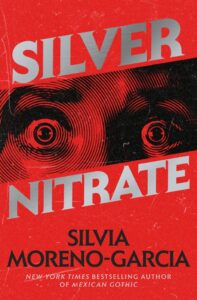
Silver Nitrate by Silvia Moreno-Garcia
Silvia Moreno-Garcia brings a warm, affectionate voice to this thriller about an odd couple investigating a lost film in Mexico City. Montserrat is a sound technician who shares a love for horror movies with her best friend Tristan, a washed-up telenovela actor. When they meet an elderly director, he tells them that his final unfinished movie formed the heart of a plot by occult ex-Nazis to infuse magic into the silver nitrate stock. As they attempt to help him finish it, the friends become increasingly wary of strange dreams and people following them through the streets. Could the cult still be active? Moreno-Garcia grounds the story in the relationship between Tristan and Montserrat, who have a will-they-won’t-they dynamic which kept me turning the pages.
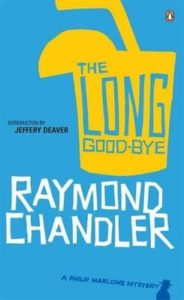
The Long Goodbye by Raymond Chandler
Corrupt policemen, housewives and doctors drift in and out of Philip Marlowe’s office in this classic LA noir. Marlowe is a lonely private detective who narrates his clients’ troubles in the cool, jaded tone of a professional whose work long since ceased to surprise him, though it definitely thrills the reader. Meanwhile, Marlowe’s friend Terry Lennox is a scarred alcoholic who needs to disappear after his rich wife is brutally murdered. Though Marlowe operates by a code of honor, we’re clued in early that his friend has buried a dark past. The meandering narrative is part of the pleasure in this sad, lyrical novel, which moves through a fugue of smoke and seedy 1940s bars as Marlowe hunts out the truth about Lennox. Everyone is a figure of suspicion.
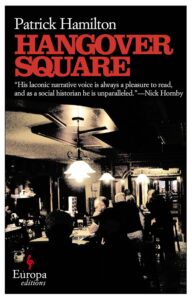
Hangover Square by Patrick Hamilton
George, a gullible alcoholic, is hopelessly in love with the cruel actress Netta. The book unfolds across long, alcohol-spattered days in 1930s London, as Netta and her friends pump George dry for the last of his small inheritance on a nauseatingly heavy drinking schedule. A friend recommended Hangover Square to me years ago as a classic British literary novel, but it’s not well-known to American readers. Hamilton frames the narrative with subtle references to Chamberlain’s policy of appeasement toward Hitler, reminding us through radio chatter of the war England still hoped to avert. Similarly, George continues to believe, with a credulousness that approaches insanity, that Netta will take him seriously as a romantic prospect one day, though the reader knows that she and her fascist friends are up to no good. We long for the crack of violence, but Hamilton’s brilliance lies in his slow, almost languid pace, drowning George’s sanity pint by pint.

My Sister, the Serial Killer by Oyinkan Braithwaite
Korede is a nurse whose life centers around her mission to protect her beautiful sister Ayoolah. Who is Ayoolah? Along with being the favorite child, she’s also a serial killer with an unpleasant habit of murdering her boyfriends. This novel is set in Lagos, Nigeria, where Korede navigates torrential storms and traffic jams as she reluctantly helps her sister clean up the mess … Until Ayoolah’s eye falls on Tade, the kind, handsome doctor at the hospital where Korede works. This novel reads like a combination of American Psycho and Nip/Tuck, imagining a murderous response to the pressure on women to be beautiful and sexually appealing. But Braithwaite doesn’t press the point. She is most interested in the sisters’ relationship, which is complex and filled with realistically petty jealousies.
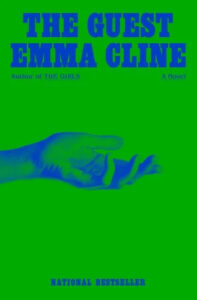
The Guest by Emma Cline
Emma Cline writes with a polished knife, laying each sentence down smoothly and carefully. Alex, the protagonist, is a young escort spending the summer in the Hamptons with a wealthy middle-aged man at his poolside mansion. When he kicks her out, Alex goes on a journey for security, cadging what she can out of strangers. Some of the most uncomfortable scenes are those in which Alex hangs out with teenagers or children – Alex is almost a child herself, but she’s also a socially attuned animal who will do whatever it takes to survive. Cline balances her scathing observations of the Hamptons scene with descriptions of the East Coast landscape, painted in calm, chilly tones: the fluctuations of the ocean, the hollow light, the people ‘tanned to the color of expensive luggage’. Though The Guest never over-explains, we feel for Alex’s plight. She manipulates people who will always land in the right place, while hers grows increasingly shaky.
______________________________

